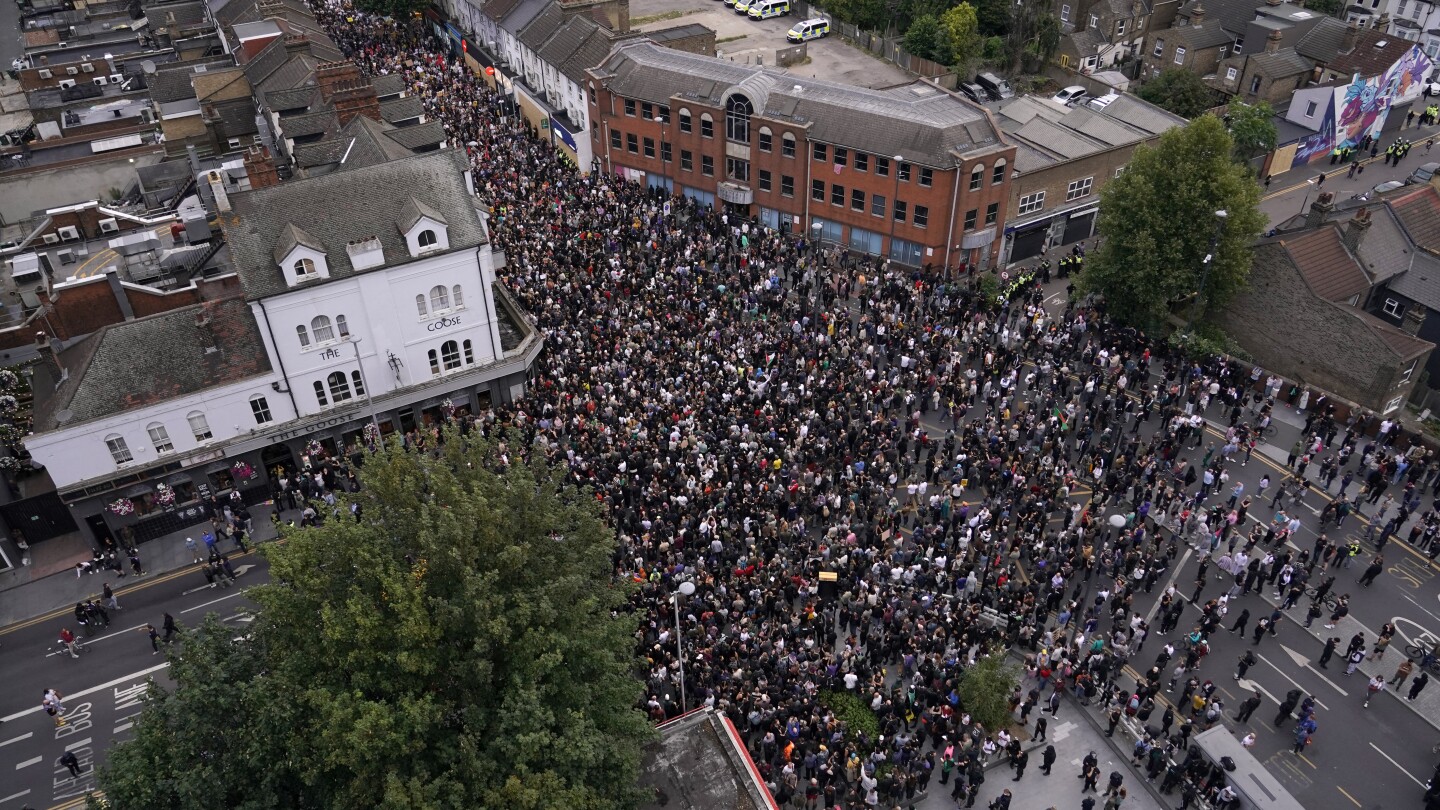LONDON (AP) — British anti-racism campaigners filled the streets of towns and cities across the country and police put on a massive show of force, largely stifling a threatened wave of far-right demonstrations.
Carrying signs saying “Refugees Welcome” and chanting “Who’s streets? Our streets,” people turned out in force on Wednesday to protect asylum service centers and the offices of immigration attorneys that had been listed as potential targets for hard-right attacks.
The government also declared a national critical incident, putting 6,000 specially trained police on standby to respond to any disorder. Police said that protests and counterprotests were largely peaceful, though a small number of arrests were made.
“The show of force from the police and, frankly, the show of unity from communities together defeated the challenges that we faced,” Commissioner Mark Rowley, the head of London’s Metropolitan Police Service, said Thursday. “It went off very peacefully last night, and the fears of extreme right disorder were abated.”
While authorities welcomed the relative calm, police and government officials remain on alert after misinformation about a knife attack that killed three young girls in the English seaside town of Southport fanned days of violence. More than 400 people have been arrested around the country after anti-immigrant mobs clashed with police, attacked mosques and overran two hotels housing asylum-seekers.
Police were prepared for further unrest after far-right activists circulated a list of more than 100 targets that might be targeted on Wednesday, including the offices of immigration lawyers and others offering services to migrants. But it failed to materialize.
The government has pledged to track down and prosecute those responsible for the disorder, including people who incite violence online. Harsh sentences handed out to rioters on Wednesday were widely publicized as a warning to anyone thinking of joining in the demonstrations.
Among the first to be convicted was Derek Drummond, 58, who was sentenced to three years in prison after admitting to violent disorder and punching a police officer in the face in Southport on July 30. Some defendants were reduced to tears as they heard that they would be kept in prison before their next hearings.
The government is also considering imposing sanctions other than jail time, including banning rioters from soccer matches. Home Office minister Diana Johnson told LBC Radio that there should be consequences for those implicated in disorder.
“I think all options are being looked at, to be honest, and I am pretty clear that most football clubs do not want to be seen to have football hooligans and people carrying out criminal acts on the streets of the local communities in their stands on a Saturday,″ she said. “So I think that’s a very live debate that’s going on at the moment.”

